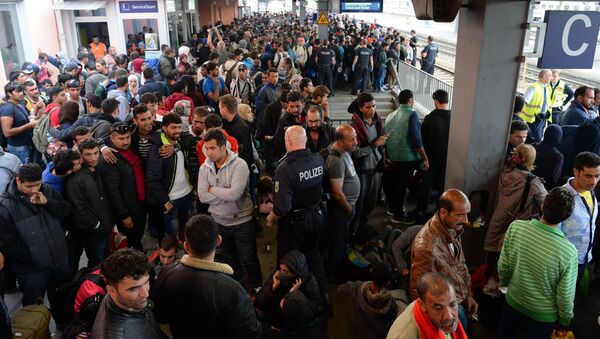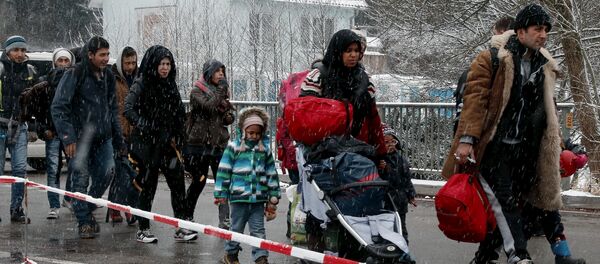At the same time, the interests of the Germans remain practically unaffected as the employment takes place on different levels. However, as experts warn, the euphoria won't last long.
According to the Munich Institute of Economic Studies Ifo, since the beginning of the year, every fifth German company has provided refugees with work. This has created a situation where Berlin seeks to take in those asylum seekers whom it views as the most suitable.
"At the expense of other EU countries, Germany wants to accept only those whom it considers suitable, and eliminate the rest. These are individuals who can be promptly "given" a job the Germans do not want to do," political observer Oleg Obukhov wrote for RIA Novosti.
Recently, experts have expressed concerns that Germany will soon need more qualified specialists. Almost all low-skilled jobs have already been taken by migrants and this means that soon there will be no vacancies for newcomers.
"This is likely to lead to unemployment. The more unemployed individuals live there, the greater the burden will be on the social system and the country's budget," Obukhov concluded.
Germany has been trying to cope with a heavy influx of migrants over the last couple of years. The country accepted over one million refugees in 2015 alone.
Following the influx of migrants, German Chancellor Angela Merkel came under pressure from within her own coalition party (CDU/CSU) for refusing to put a cap in the number of refugees Germany will take in. The original influx in 2015 caused chaos, with many German states — particularly Bavaria — struggling to cope with asylum applications.




